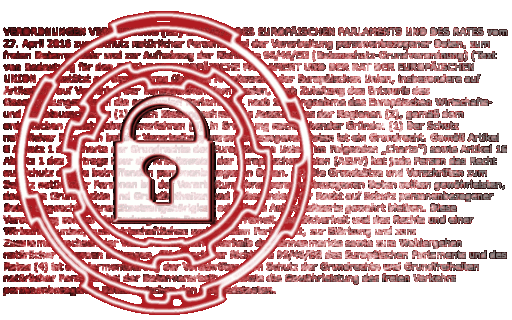

Misunderstanding. The news media is suing X. I pointed out what news media does without paying.


Misunderstanding. The news media is suing X. I pointed out what news media does without paying.


They’ll play whack a mole for decades, just like they have been for P2P file sharing.
Some differences to that, though.
Downloaders can be prosecuted. That raises the question of what happens to kids or their parents who use non-compliant sites.
Blocked servers are inaccessible to adults, too, which raises freedom of information issues. These servers don’t contain illegal information, after all.
Large scale piracy is illegal pretty much everywhere, meaning that the industry can go after the operators and get the servers offline. Not so here.


You think people should pay X to link to tweets? Or generally for quotes?


Ok. Smaller platforms like this here lemmy server don’t do anything because it’s expensive, or they are ethically opposed. They have no business in Australia and fines can’t be collected. Australian kids (and adults who want to be anonymous, or don’t like the government-mandated changes) flock to these platforms.
What now?


More like: They want to sell the cake and be paid when you recommend it to others.
Mind that news media don’t pay when they link to social media, quote people, or even report what other media has reported. The real question is, if this law has any beneficial effect for society. I don’t see how.


Oh, he’s saying that snippet view lets us have sites like lemmy. I didn’t get how cracking down on that would help lemmy.


It should only show the title and the link imo.
That’s infringement in Europe, which makes it effectively a link tax.


Huh? How you mean?


It’ll be more than a question. But again, how will Australia enforce that? Even if Australia provided a free API for age checks, it would still be a hassle to implement it. Are eg Fediverse devs going to do that?
Australian law enforcement can seize servers that are physically in Australia. It can also cut off cash flow for any business with paying customers in Australia. And all the rest? Even aside from free VPNs, there is a lot of internet that they can’t touch.
They can lean on the likes of Youtube or Facebook to steer people in a more government approved direction. But as soon as people become annoyed or bored, they just go elsewhere beyond government control. If ID requirements are onerous for ordinary people, they will avoid compliant sites from the start.
The government could make Australian ISPs use a blacklist or a whitelist. Serious enforcement is possible, but not without going full totalitarian.


Das macht keinen Unterschied.
Im Prinzip ist es so, dass es persönliche Daten bleiben, wenn die Verbindung zur Person wieder hergestellt werden kann. Aber hier ist das so, weil die kompletten Daten im Archiv vorhanden sind. Der korrekt anonymisierte Text soll verschwinden. Das ist eigentlich ein Fall fürs Urheberrecht, aber die Nutzungsrechte sind abgetreten. Das jetzt so hintenrum mit DSGVO zu versuchen halte ich für Rechtsmissbrauch.
Man könnte sich beschweren, dass Reddit nicht genug unternimmt, um die persönlichen Daten aus solchen Archiven zu löschen. Reddit ist verpflichtet, zumutbare Anstrengungen zu machen.


Ok, and how will it be enforced at all?


Hmm. Man könnte anführen, dass die Anonymisierung nicht funktioniert, weil diese Archive existieren. Ich habe aber Zweifel, ob das Erfolg hat.
Unddit und Co sind natürlich nach hiesigen Maßstäben praktisch schwerkriminell.


Die DGVO sagt sogar ausdrücklich, dass eine Online-Kennung eine Person identifizierbar macht. Das muss nicht weiter auflösbar sein. Für Lemmy ist das natürlich ein Problem, hat aber nichts dem Thema zu tun.
Bei dynamischen IP-Adressen ist es komplizierter. Der Zweck einer Vorratsdatenspeicherung ist die Zuordnung der IP zu einer Person. Das heißt, ohne Vorratsspeicherung hätte man eher kein Problem beim Speichern solcher IPs.


Ja, aber nicht ganz. Die Plattform muss das so machen, um den Safe-Harbor-Status zu behalten. Wenn eine Plattform einer DMCA-Notice nicht nachkommt, dann ist sie für die angebliche Urheberrechtsverletzung verantwortlich/haftbar. Aber eine Plattform darf das. Praktisch ist eine Einzelfallprüfung natürlich unmöglich, sodass keine andere Wahl besteht, als das automatisiert durchzuwinken.
Aber wenn/falls die merken, dass missbräuchliche DMCAs geschickt werden, musst du damit rechnen, dass die deswegen was machen. Denn sonst “könnt ja jeder kommen”, wie’s so schön heißt.


Ja, wenn die Anonymisierung nicht richtig gemacht wurde, dann wäre das ein Problem. Ich sehe aber nicht, wo es solche Probleme gibt.
Du wirst sicher recht haben, dass die Wiederherstellung eher aus betriebswirtschaftlichen Gründen als wegen der DSGVO gemacht wird, aber das ändert nichts an der Rechtslage.


Natürlich lässt sich Reddit die Nutzungsrechte unwiderruflich einräumen. Man könnte argumentieren, dass es ein Problem mit dem Vertrag gibt und die Klausel unwirksam ist. Dann wäre das ein zivilrechtlicher Streit und keine betrügerische Falschbehauptung. Das ist die Grauzone, die ich meine.


Gefälschte DMCA-Notices sind allerdings potenziell strafbar. Hier ist es natürlich eine Grauzone.


Was genau ist das Problem?
Der Post ist anonymisiert. Also wohl kein persönliches Datum im Sinne der DSGVO. Oder gibt es noch eine Möglichkeit, diese Posts mit dir in Verbindung zu bringen?
Man könnte sogar argumentieren, dass die DSGVO unter den Umständen Reddit verpflichtet solche Posts wieder herzustellen. Man hat ein Anrecht auf Vollständigkeit der persönlichen Daten. Wenn ein Post verschwindet, dann fehlt Kontext für andere Posts, die noch persönliche Daten sind.
Because that’s one key feature in the “2019 European directive adopted into French law”. It’s also what the Google fine was about.
Also, X isn’t really suitable for copy/pasting entire articles, like is done on lemmy. So that’s probably not it.